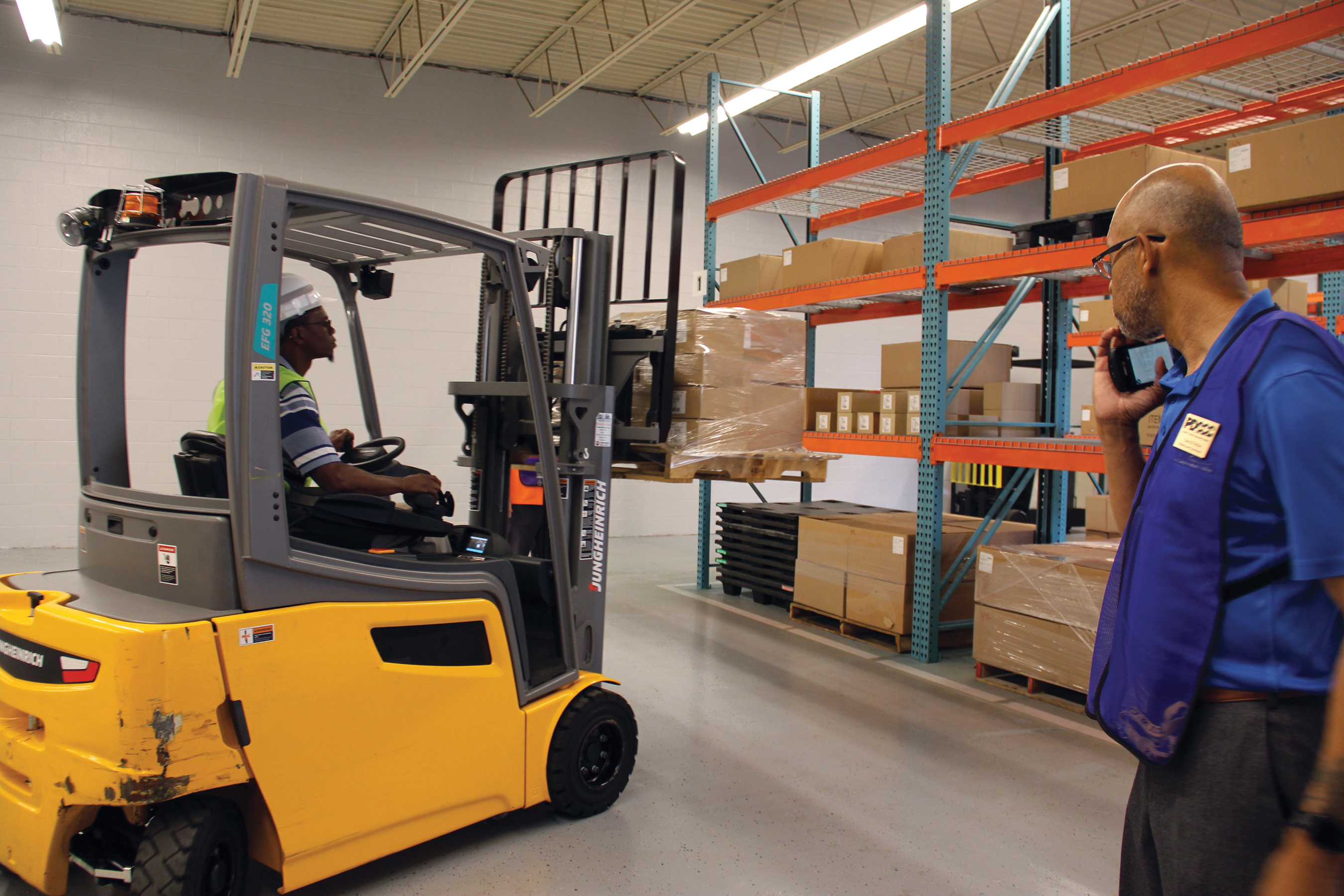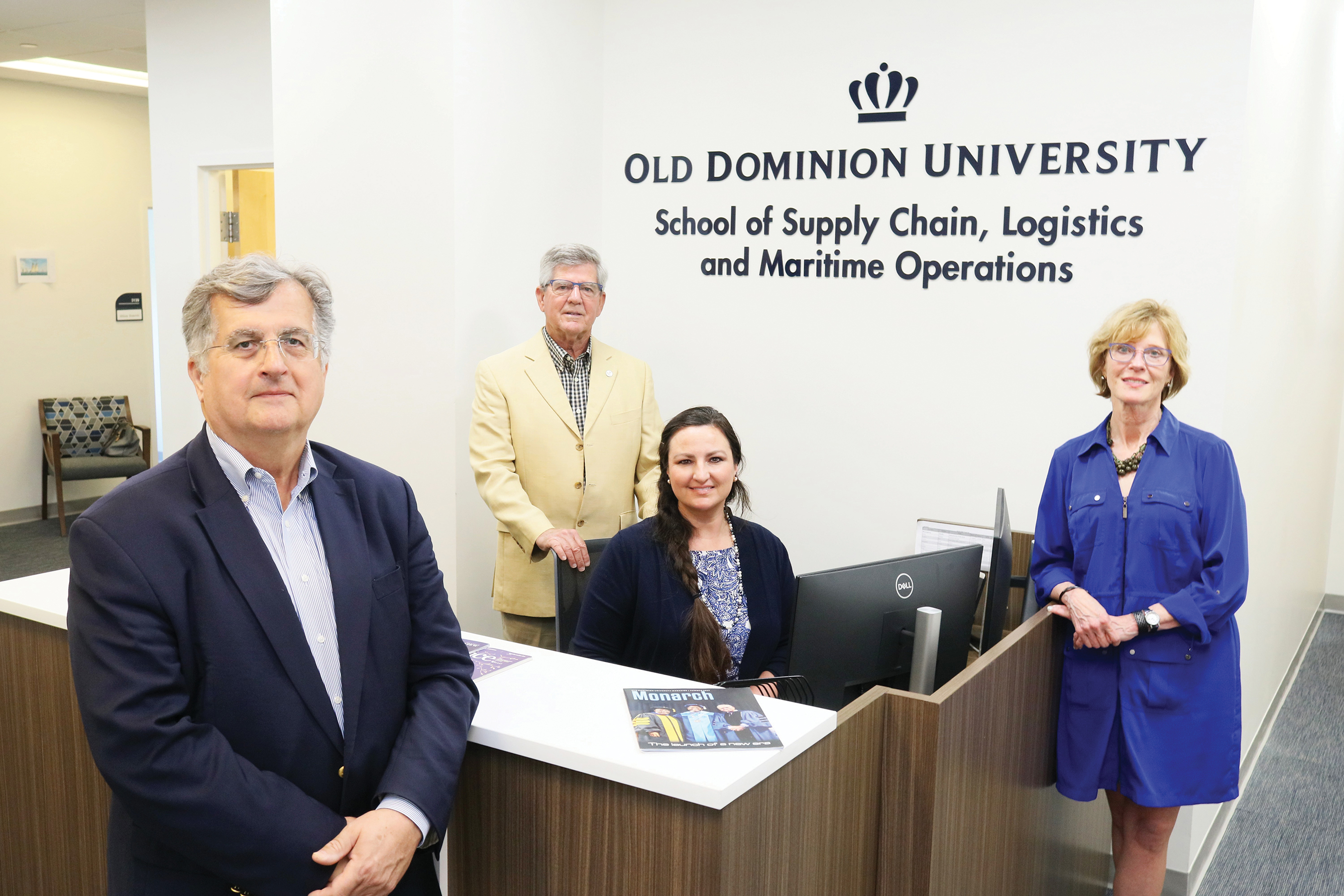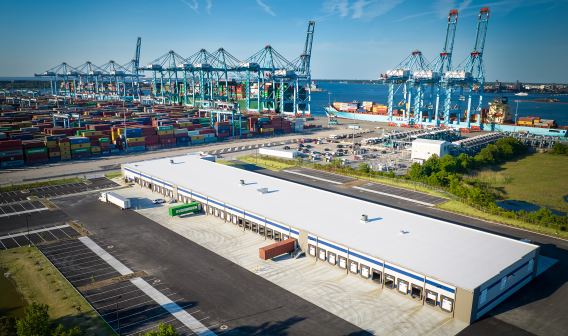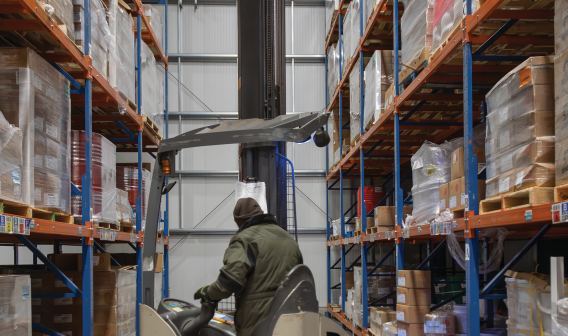Building a Supply Chain Workforce in Hampton Roads

Paul D. Camp Community College
Supply chain management (SCM) and logistics have changed dramatically in the last decade. There’s growing demand for deeper visibility into every step of the supply chain. Automation is playing an ever-larger role in the movement of goods. Delivery times are shrinking even as supply chain hurdles become more complex. With each of these changes, the supply chain workforce is forced to adapt and adopt new skill sets.
In Virginia, where the movement of freight supports more than $350 billion of the annual gross state product, educational institutions are ensuring a workforce is ready to meet the evolving needs of the supply chain industry.
To keep ahead of the industry’s evolving demands, Old Dominion University (ODU) in Norfolk has established a new interdisciplinary School of Supply Chain, Logistics & Maritime Operations. When classes begin in August, the school will be uniquely positioned to connect students with in-demand careers in SCM and logistics and local employers with a trained workforce pipeline.
“It’s a first-of-its-kind offering for this region due to its focus on maritime,” said Elspeth McMahon, associate vice president for maritime initiatives at ODU. “When building this new school and its associated programs, we leveraged the strengths of ODU and its location in the heart of Hampton Roads. Industry was heavily involved to ensure that their needs are met and that we provide the right skills for the future workforce.”
Students at the standalone school will have the option of pursuing a bachelor’s degree in interdisciplinary studies with a major in supply chain and maritime logistics and a master’s degree in maritime trade and supply chain management. Courses will cover topics as varied as forward and reverse logistics, warehouse and materials management, global sourcing and supply management, buyer-supplier relationships, port operator costing and pricing, and analysis of international shipping. The school also offers previously existing graduate certificates in supply chain management and maritime port and logistics management that provide students with speed and flexibility in advancing their skills.
An Ideal Location for Relevant Experience
The school’s location, just minutes away from The Port of Virginia, Naval Station Norfolk, and HII’s Newport News Shipbuilding, sets an ideal stage for on-site experiential learning opportunities, hands-on capstone projects, and local internships in the maritime industry. However, McMahon notes that the school’s curriculum will look well beyond the maritime industry to provide valuable SCM and logistics skills for fields including healthcare, advanced manufacturing, and renewable energy.
The school’s goal of serving myriad industries beyond maritime has attracted support from partners as diverse as sister companies Dollar Tree, Inc. (headquartered in nearby Chesapeake) and Family Dollar Stores, Inc., which manage a vast supply chain and distribution across 48 states and Canada, and warehousing, transportation, and logistics provider Givens Logistics. Ocean carrier Maersk Line, Ltd. and maritime fleet operator McAllister Towing provide a maritime perspective that is rounded out by additional support from the Virginia Maritime Association and the Virginia Ship Repair Association.
While these and other industry partners provide hands-on learning opportunities for students, they also stand to benefit through ODU’s work as an R1 research institution. The school has set a mission to work closely with industry, government, and other institutions to explore solutions to key supply chain and logistics challenges. “We’re really looking at the future of the industry,” McMahon said.

Old Dominion University School of Supply Chain, Logistics & Maritime Operations
Identifying the Skills of Tomorrow
To the west, Paul D. Camp Community College is preparing students to meet immediate workforce demands for the area’s warehouses and fulfillment centers. The college, which serves students in southeastern Virginia through locations in Franklin, Smithfield, and Suffolk, is working closely with industry leaders to better understand how to position its course offerings to connect students with in-demand skills.
For example, while Amazon’s robotic fulfillment center in Suffolk was under construction, Camp’s president, Dr. Corey McCray, met with partners in Suffolk to identify the skills that would be needed to run a largely automated site. With unmanned forklifts, robotic arms, and conveyor belts moving goods through warehouses and fulfillment centers, McCray found that companies are looking for individuals who can perform maintenance to keep those robotics systems operational.
Camp is working to provide these skills by offering a range of programs that meet students’ needs for flexible education options. Its logistics offerings include industrial automation, robotics, and mechatronics programs, as well as a foundational Certified Logistics Associate certificate and a mid-level Certified Logistics Technician credential.
McCray said the mechanical, electrical, and data science knowledge gained through the school’s mechatronics and related programs has far-reaching applications. To ensure the program is preparing students pursuing these degrees for work in the logistics sector, the school is leveraging a GO Virginia grant to conduct a more expansive survey of the business landscape. With deeper insight into in-demand skill sets, the college will be able to assemble a comprehensive plan to upskill low-wage warehouse workers through its short-term training and degree offerings.
“We want to drill down and make certain we’re addressing the regional needs. This grant will allow us to engage with our business partners and make sure we have our finger on the pulse of what they actually need in the way of skill sets,” McCray said.
As these schools strengthen their offerings, they’re also working to build community awareness around the value of a career in SCM or logistics.
“People don’t necessarily know about the maritime industry, or have only heard about the supply chain because of the COVID-19 pandemic,” McMahon said. “Not everyone is aware that there are many great, high-paying jobs in the maritime and supply chain industries right here in Hampton Roads.”
ODU is connecting with alumni and industry partners to develop its strategy to raise awareness around its new school and the opportunities it offers students to stand out in a growing field. Camp, meanwhile, has taken a multi-pronged approach that focuses on meeting a range of student needs.
The college actively engages veterans transitioning out of the military — a large population at ODU, where roughly 25% of students are military-affiliated, and in Hampton Roads, home to 15 military installations and more than 80,000 active-duty service members — and works with employed individuals looking to upskill and local school districts to educate students on their options.
“When [students] understand that this is not about pulling the levers on a forklift but is really robotics, they light up,” McCray said.




